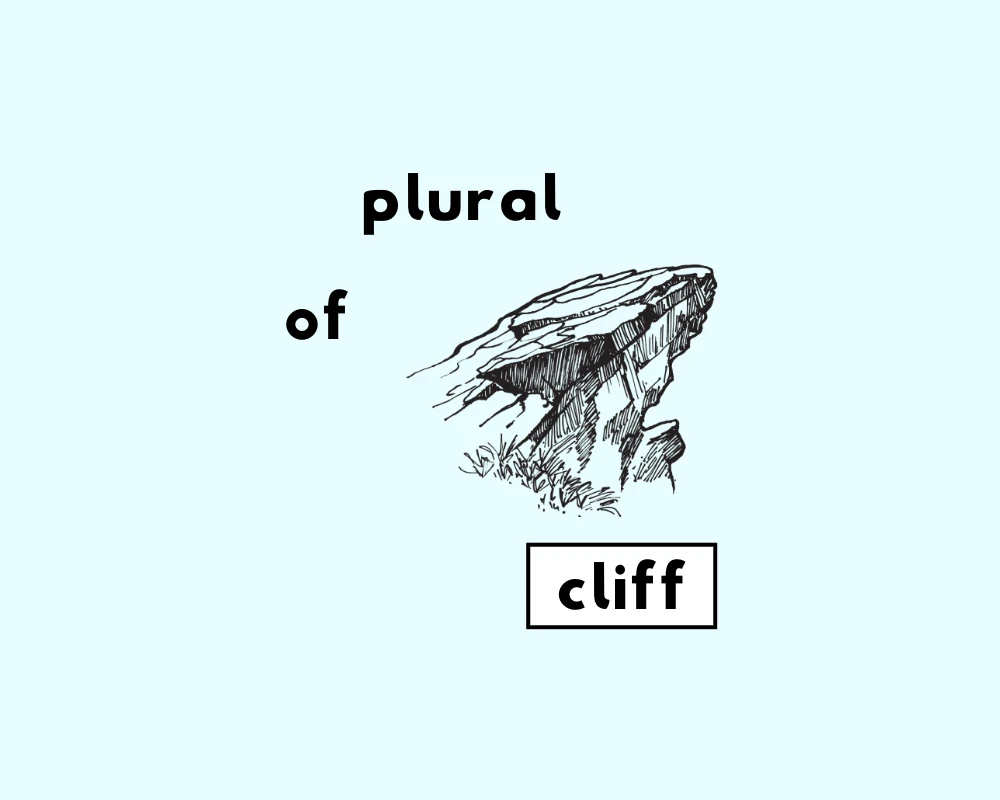Contents
Toggle
What’s the plural of “cliff“?
Cliff plural is cliffs. Usually singular nouns that end in –f (and are sibilants) take on –ves to show a plural noun. The word cliff presents an exception to the rule, and simply takes on an –s (the same as any regular plural noun form in English).
Some examples of words that are similar to cliff in that they present exceptions with this rule includes roofs and proofs. Cliffs, roofs, proofs, all do not follow the typical ‘f/ves’ plural noun convention.
What’s the definition of cliff?
The dictionary defines the word cliff as, “a very steep, vertical, or overhanging face of rock, earth, or ice.”
Nouns that end in –f/-fe
As it turns out, some wordsmiths eons ago (which I have no existent knowledge of), created this plural noun form as a rule to to avoid the mouthful of combining ‘f’ and ‘s’ sounds. Can’t blame them for that. For the most part, it is fair to assume that nouns ending in ‘f’ or ‘fe’ modify to a ‘ves’ as a plural. Each of the following are considered irregular in English, since they do not take on -s/-es as regular plural nouns do.
Cliff (sing. n.) in context
1. Standing at the edge of the cliff, we watched the waves crash on the shore far below.
2. The hotel was perched high on a cliff overlooking the ocean.
3. The cliff edge top.
4. The car slid off the cliff before I got back.
5. They reached the cliff before the first arrows fell.
Cliffs (pl. n.) in context
1. The chalk cliffs of southern England.
2. A castle perched high on the cliffs above the river.
3. A long line of cliffs surrounding the bay.
4. Crumbling cliffs.
5. The cliffs fall away to the north.
Synonyms of cliff
- barranca
- barranco
- bluff
- crages
- escarpment
- palisade
- precipice
- scar
- scarp
Origin of cliff
Etymonline on the origin of cliff:
Old English clif “steep and rugged face of a rocky mass, promontory, steep slope,” from Proto-Germanic *kliban (source also of Old Saxon clif, Old Norse klif, Middle Dutch klippe, Dutch klip, Old High German klep, German Klipp.e “cliff, promontory, steep rock”).
Clift has been a variant spelling since 15c. and was common in early Modern English. It represents an influence by or merger with clift, a variant of cleft (n.). Cliff-dweller first attested 1879, American English, in reference to aboriginal tribes of the U.S. Southwest who built dwellings in natural recesses in cliffs.
Sources
- Etymonline, cliff.










